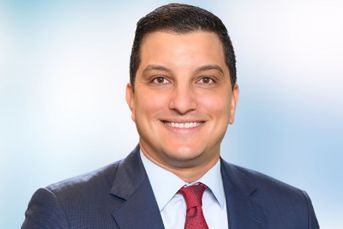CEO Mark Casady apologizes to LPL Financial shareholders for compliance missteps
Mark Casady apologizes to LPL Financial shareholders for compliance missteps as company takes hit to third-quarter profits. (See also: LPL's regulatory hit list)
LPL Financial chief executive Mark Casady on Thursday apologized to shareholders for taking so long to straighten out its compliance issues, which have cost the nation’s largest independent broker-dealer millions of dollars in fines, restitution payments and settlements with regulators.
“It’s been a two-year journey to reduce complexity by increasing automation and controls,” Mr. Casady said on an earnings conference call. “I apologize to all shareholders for the bumpiness of the journey.”
LPL Financial Holdings Inc., the parent of the broker-dealer, said last week that it expected the broker-dealer to incur up to $23 million in charges — $18 million more than previously anticipated — to resolve undisclosed regulatory matters such as fines and restitution.
(More: LPL Financial agrees to pay $541,000 for faulty variable annuities switches in Massachusetts)
Mr. Casady repeatedly declined to give details about any pending fines from regulators. He added that while he was pleased with the long-term outlook for the company’s compliance and risk oversight efforts, the next 24 months could still be difficult.
“We’re in a highly elevated period of regulatory issues,” Mr. Casady said. “This is significantly higher than we have historically seen. This is a work in progress. I’ve characterized to our regulators that we are 60% of the way through the process. That’s not 100%. There are still other things” that can result in fines, he said.
LPL’s net revenue reached $1.089 billion for the three months ended Sept. 30, an increase of 3.4% compared with the same quarter last year. On the back of the regulatory charges, the firm’s net income declined 11.6% to $33.2 million when compared with the same quarter last year. LPL has brought in $17 billion in net new advisory assets over the past 12 months, including a record $5 billion in the third quarter.
(Related: LPL wants bigger voice in Washington)
LPL has been in the cross hairs of state regulators as well as the Financial Industry Regulatory Authority Inc., the brokerage industry’s self-regulatory organization. Two products that have caused LPL to pay fines or restitution to clients have been nontraded real estate investment trusts, a popular alternative investment, and variable annuities.
Mr. Casady focused on those two products in his remarks about the firm improving its compliance oversight. “The difference between products is not their underlining efficacy,” he said. “The problem is those things done manually versus those that are automated. Alternative investments and variable annuities are manually processed. New variable annuity systems have helped and we’re going to an automated system for alternatives.”
Meanwhile, LPL Financial fell short in the third quarter of its originally stated goal of recruiting advisers with $20 million to $25 million of annual revenue from Financial Telesis, a retirement-focused broker-dealer with 470 advisers, which agreed to sell its assets to LPL in July. LPL was able to recruit 90 Financial Telesis advisers who produced $12 million in gross revenue annually.
(More on LPL: Wunderlich and fired LPL broker part ways)
The market for retirement plan advisers is “highly competitive,” LPL’s chief financial officer, Dan Arnold, said in an interview after the earnings call. He added that many of the Financial Telesis advisers were wedded to legacy systems and thus unsure about whether they could keep those systems in place if they moved to LPL.
Despite recruiting 90 Financial Telesis advisers, LPL added only 70 net new advisers for the quarter. The difference in those numbers was due to LPL branches and offices cutting ties to lower-producing brokers, which did not reflect an initiative on LPL’s part to stop doing business with such advisers, Mr. Arnold said. Such low-producing advisers, while perhaps crimping the company’s overall head count, had negligible effect on the firm’s total revenue, Mr. Arnold said.
Learn more about reprints and licensing for this article.








